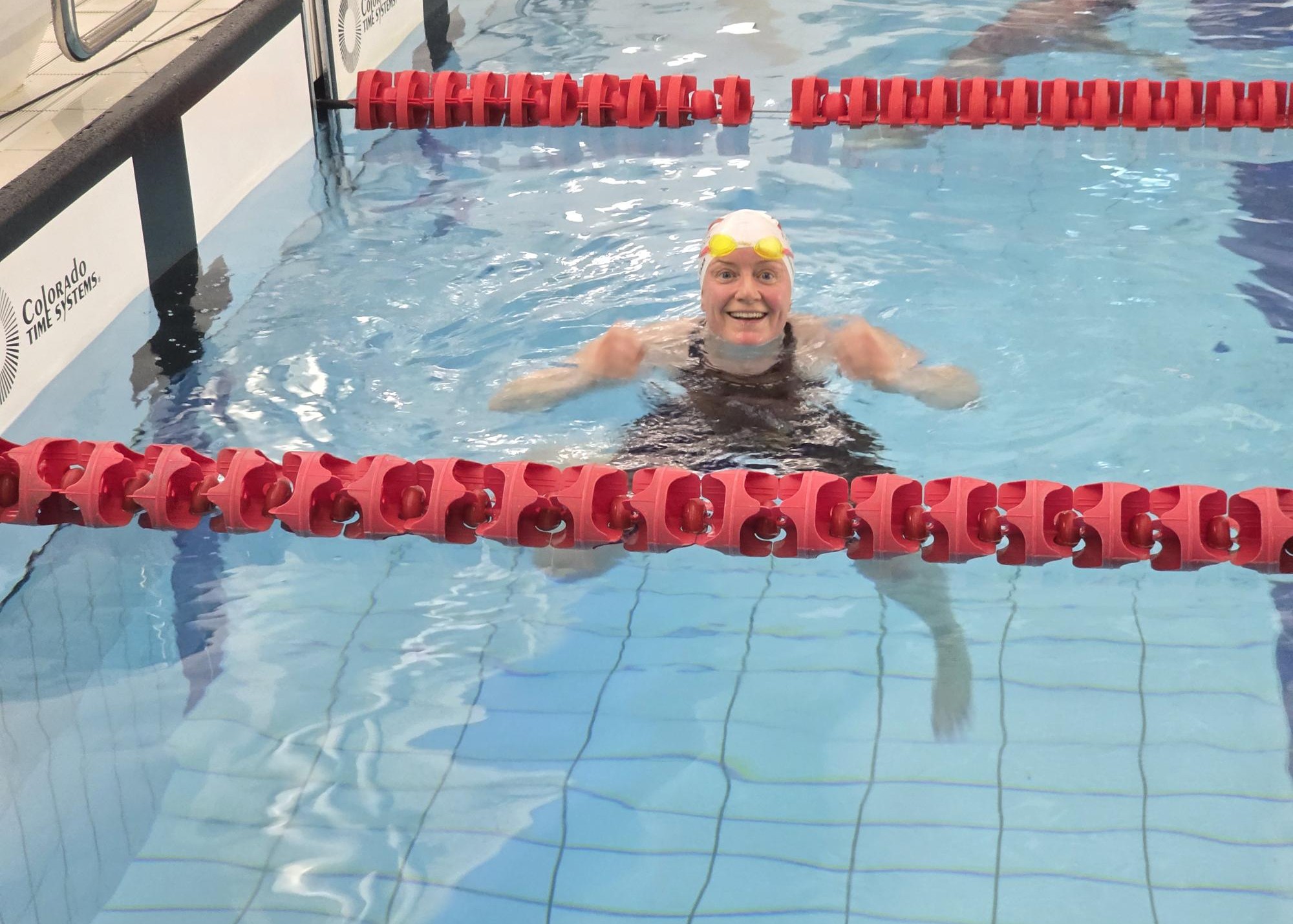The 1500m is neither a sprint nor a marathon, yet it’s arguably more challenging than either
You wouldn’t walk into an exam you hadn’t prepared for. Well, maybe you did when you were younger, but you certainly wouldn’t recommend it.
Likewise, it’s not a good idea to tackle a swimming event you haven’t prepared for.
But last weekend I did just that, when some friends encouraged me to sign up for a 1500m pool swim – 60 lengths of a 25m pool. It’s a uniquely tough event that sits in the painful middle ground between sprint and endurance.
Still, you might think a 1500m swim shouldn’t trouble me too much. After all, I’ve done several open water swims of 10km or longer over the summer, and I’ve done lots of sprint races (50m to 200m) in the pool. The 1500m should be perfect for me, right?
Actually, no. Strangely, training for the extremes of short and long distances is not great preparation for a 1500m pool swim.
A different system
Sprints require strength, reactions, and great starts and turns. Long-distance swims demand low-intensity staying power. In contrast, to swim a good 1500m, you need to find your threshold pace and hold it for the duration. Your aerobic engine needs to be finely tuned and firing on all cylinders. Even if you’ve trained for this, it’s uncomfortable. If you haven’t, well, it’s worse.
Of course, you could swim it at your long-distance endurance pace. There was no issue about being able to finish (although I certainly felt like giving up from about 500m onwards) but – once I’d committed – I wanted to give it my best effort.
Don’t do it!
I had plenty of reasons for not doing this event. My relative performance in pool races declines above 200m as I’ve optimised my training for the 100m freestyle recently (see Sub 60 before 60). In the pool, I don’t have access to strategies and tactics that I can use in open water. In open water, I have a reputation for drafting faster swimmers for 99% of the race before unleashing a winning sprint in the final 50m. Nor do I have the distraction of changing scenery or the thrill of head-to-head racing. Moreover, I’m supposed to be in the middle of an end-of-season break.
The 1500m is unique in its ability to torment you. There are 59 turns you could fumble (one for every year of my age, coincidentally). There’s nothing to see except the black line at the bottom of the pool, and maybe a few bored but nervous people on the poolside waiting for their swim. It’s long enough that your mind has plenty of time to wander and question your life choices. You want the pain to stop, but you know that if you give up – or even ease off – you’ll regret it later. And you have no real idea if you’re swimming well or not.
Last-minute change of heart
Given all that, you may be wondering why I bowed to peer pressure and signed up.
It was, in fact, a last-minute decision – just 3 hours before entries closed. I had been adamant until the final day that I wouldn’t do it. The 1500 doesn’t play to my strengths and I wasn’t prepared. I knew I’d finish far behind people I train with, who I can beat at shorter distances.
But then I decided that was the perfect reason to do the event. The core thinking behind Renaissance Swimmer is to embrace a wide range of swimming activities and experiment with swims that are personally challenging. The 1500 isn’t dangerous, just painful. I knew I’d learn something by taking it on.
The last time I did 1500m in a 25m pool was in 2012. This time I was 50 seconds slower. It was worse than I hoped for but better than I feared. I’m disappointed, but I’ve highlighted a relative weak spot in my swimming skills and given me something to work on next year.
Do it again?
I can’t say I enjoyed that 1500m swim, but I am glad I did it. It’s a curious feature of difficult swims that they look and feel better in hindsight than when you’re doing them. Sometimes the hardest races aren’t the longest, but the ones that expose our weaknesses and suggest things we can work on.
So, I’m low-key inspired. Can I bring my time back to something like I did before? Swimming poses us these puzzles. Part of the attraction is trying to solve them. I’m currently thinking I might not wait another 13 years before I try again – but that may change!
Image: My friend and training partner Liz is a master of pacing in the 1500. She beat me by more than a minute and set a new Welsh record for her age group

